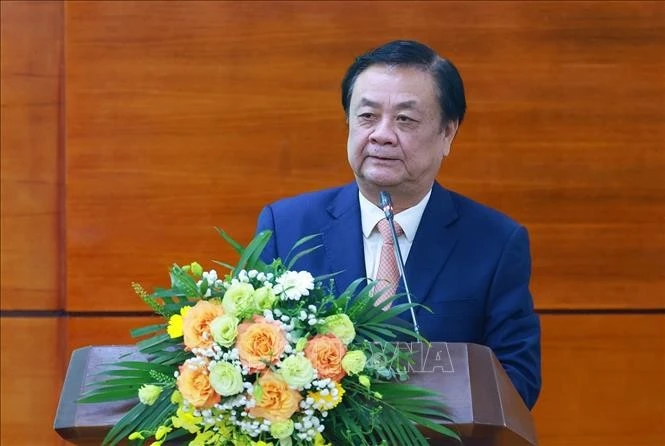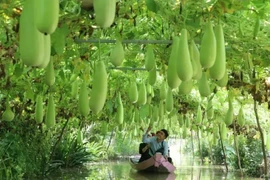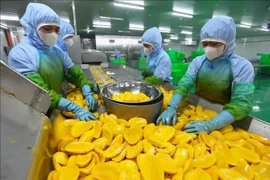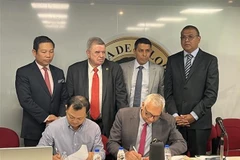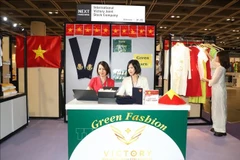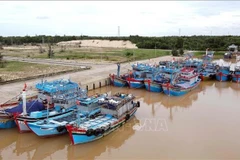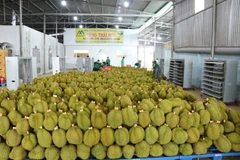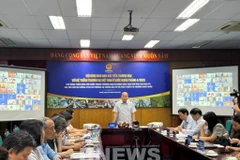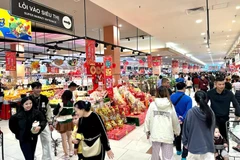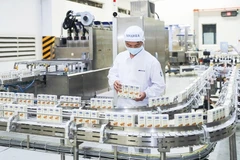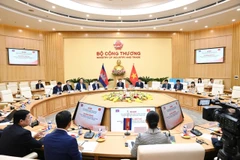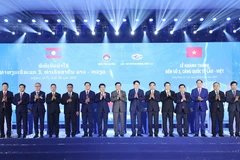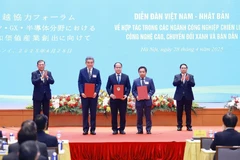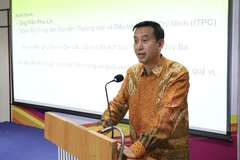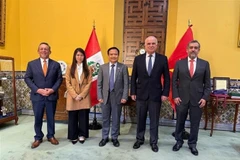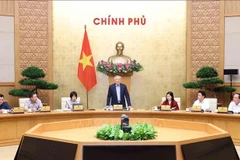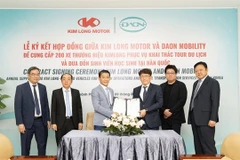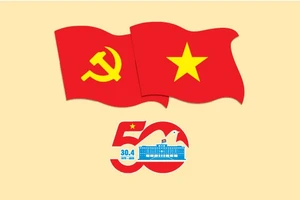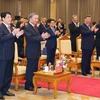Hanoi (VNA) – Minister of Agriculture and Rural Development Le Minh Hoan envisions the agricultural sector moving beyond food production to exploit new value domains, highlighting it must develop multi-purpose and multi-layered value to make breakthroughs in the new era – that of the nation's rise.
In a recent interview with the Vietnam News Agency, he stated that 2025 will open up both opportunities and challenges for the industry, requiring adaptation to meet challenges head on and leverage its intrinsic strength and external resources to strengthen the position of Vietnam's agricultural products in the international market.
Vietnamese agriculture needs to transcend boundaries and geographical limitations, he said, stressing the country is promoting international cooperation in cultivation and animal husbandry across the region and the world to ensure food security.
He emphasised maritime resources beyond traditional fishing, noting the potential of coral reefs and seaweed for sustainable livelihoods and carbon credit generation.
Touching on the achievements that the sector carved out in 2024, despite formidable challenges caused by natural disasters, Hoan highlighted that the agro-forestry-fisheries export hit a record high of 62.5 billion USD, a year-on-year increase of 18.7%. Meanwhile, the sector enjoyed a trade surplus of 17.9 billion USD, surging 46.8%.
The success, according to Hoan, stemmed from the concerted efforts of farmers and businesses as well as a fundamental shift in mindset from agricultural production to agricultural economy.
He stressed that farmers now understand the significance of aligning production with market demands and they have embraced market-oriented economic thinking, noting local authorities have become more proactive in facilitating market connections and addressing supply chain inefficiencies.
Last year, various trade fairs and festivals were held across the nation, with local authorities showing remarkable initiatives in market connectivity while farmers getting a better insight into market diversity and recognising that each market has its own standards and technical barriers.
Looking ahead, he said the ministry will continue enhancing trade promotion, stepping up negotiations to remove technical and trade barriers in such traditional markets as China, the EU, Japan, and the US while exploring new opportunities in halal food markets in Islamic countries, the Middle East, and Africa.
The ministry will work with other ministries and agencies to capitalise on the signed free trade agreements as well as regional and bilateral trade pacts and support enterprises in promotional campaigns.
He laid stress on the untapped potential in circular agriculture where agricultural by-products like husks, bran, and straw could be transformed into growing media or organic fertiliser, creating additional revenue streams.
Similar opportunities could be seen in coffee production, where currently only 0.02% of the bean is used in beverage making, he said, suggesting coffee grounds could be transformed into a planting medium for mushroom cultivation, with the residual material serving as animal feed.
“If we view agricultural products in isolation, we are only tapping into the lowest layer of the value chain," he stated, adding the sector should work towards the elimination of agricultural waste through the principles of the circular economy./.
